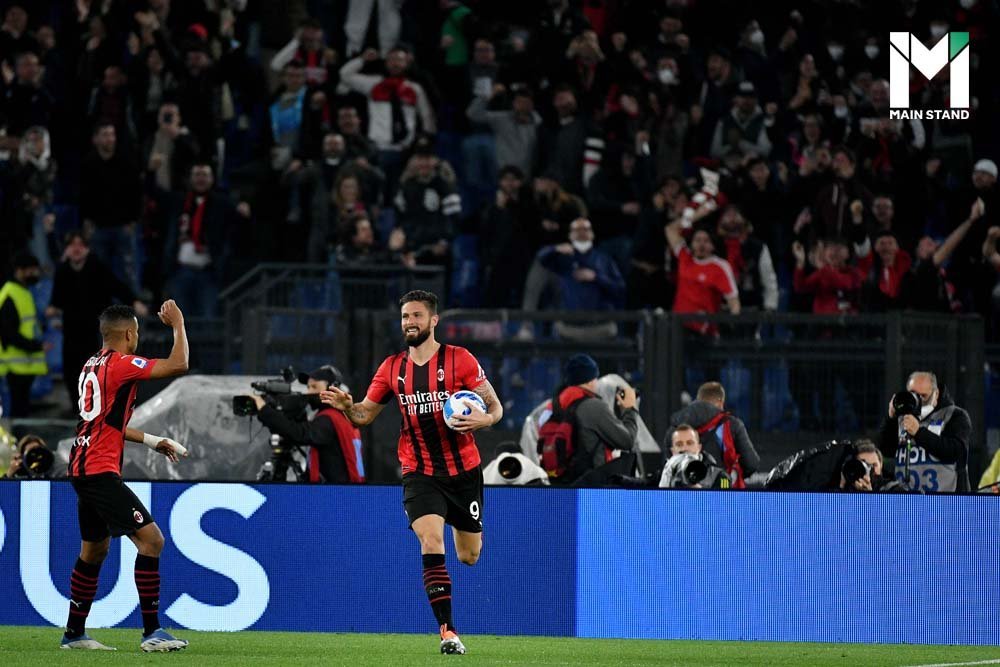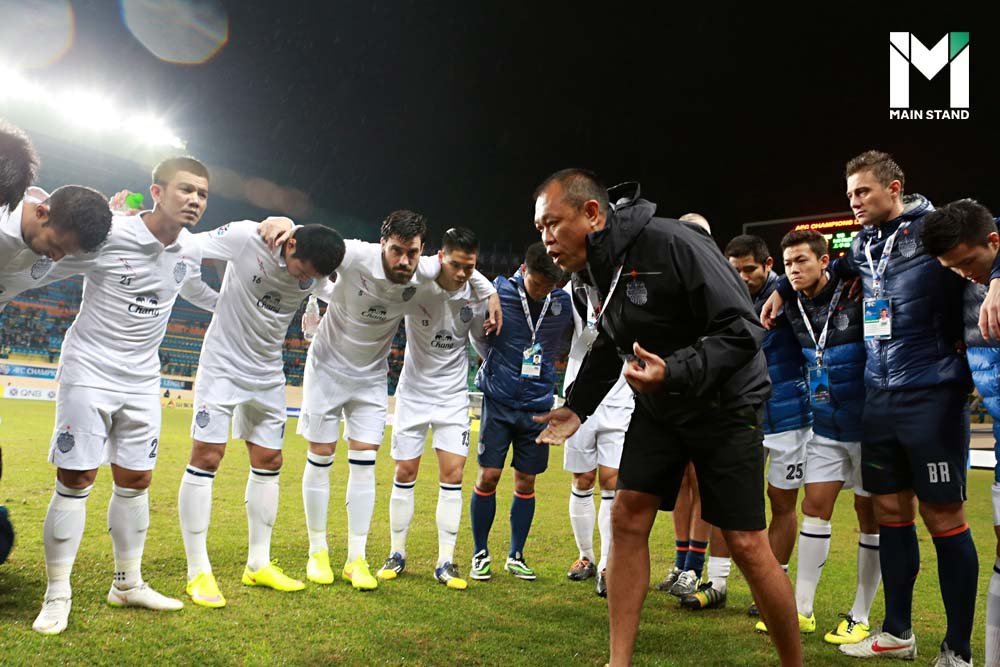
An intriguing fact that we have gathered over the years is that most star players in the Asian Leagues, or even minor European Football Leagues often hail from the South American continent, namely Brazil.
Have you ever wondered why footballers from England, Italy, Spain, Germany and France, are rare in the Middle East, South America or even our Thai League? Let's find out why staggering wages fail to lure them to leagues outside of Europe.
Sending players out of the country
First of all, let's find out whether it is true that footballers from top European leagues refuse to play in 'smaller' foreign leagues, including leagues in Asia where a large amount of money is guaranteed.
According to CIES Football Observatory, the country that sends players to play overseas the most is Brazil. Brazilian players are found in almost every footballing nation worldwide, even in leagues with modest recognition.

The European nations with the most overseas players are Serbia and Croatia. In this instance, you can look at the Thai League.
Dragan Bošković, Marko Šćepović, Goran Čaušić, Renato Kelić, Adnan Orahovac, Aris Zarifović, Ognjen Mudrinski and Admir Bajrović are some of the foreign players who have played in the Thai League, following the footstep of other foreign players who joined the League before.
On the contrary, only a handful of footballers from Western Europe or 'footballing superpower nations' play or played in the Thai League. In the 2022-2023 season, Nakhon Ratchasima Mazda FC's Charlie Clough is the only player from Western Europe.

Therefore, the question remains. Why are all players from Eastern Europe? Why don't many footballers from the 'footballing superpower nation' choose Asia and South America as their football destinations?
Are they at the end of the road of football?
European players opt not to play in minor leagues on foreign soil because they are now at the zenith of football. Moreover, to equip themselves with more advanced skills, they prefer not to move anywhere viewed as a 'downgrade'.
Even the Chinese Super League once invested a large sum of money into foreign players and successfully signed top-tier South American and African players.
Although they successfully signed Belgians Yannick Carrasco, Axel Witsel and Italian Graziano Pellè, these players only lasted briefly in the League before ending up with a stronger European league.

"All footballers may dream of playing in the top leagues, lifting the Champions League trophy and going head-to-head with Messi or Ronaldo… a move away from Europe is damaging to players' careers (Even Nicolas Anelka and Didier Drogba, whose spells at Shanghai Shenhua were reported in the English media as being disastrous, both enjoyed spells in the Premier League after their stint in China, with Drogba returning to Chelsea and Anelka joining West Brom)," Steve Price from These Football Times quoted in his column, in regards to former European players' spells in the Far East.
Many top-notch players share the sentence above, especially those who long to challenge themselves further and prioritize their position as national team players and even succeed further in their careers. Else, they will move to play on this side of the globe.
Olivier Giroud was once approached by a Chinese Super League while serving as an Arsenal substitute. While many believed his football career was on the verge of a decline, he refused the offer.

"If you ask me if I would like to go now, I would tell you no. I still want to play in the Premier League. I am happy here. This is my club and I want to win more trophies with this club. The Premier League is my main target. After I have won it, maybe one day, you never know. I am still young and I have ambition," said Giroud, admitting he can see the attraction of a big-money move to China but believes players should only consider moving to the Far East after achieving all their ambitions in Europe.
Giroud has since left for AC Milan and even won the Serie A title with the Rossoneri. However, to date, he has yet to play in the Chinese League.
Likewise, Arjen Robben, a former Bayern Munich winger, once opined, "I do not understand players going to China at the age of 27 or 28. Those guys are at the peak of their careers. That is a waste really. You only get one career. I (sort of) understand players who are already in their 30s."
Giroud and Robben both pointed out how players prioritize their existence in top leagues, regardless of the substantial amount of money offered at the expense of leaving.
Living far away from their home country may make them underestimate or question their capabilities as a footballer. On top of that, competing against rivals with inferior performance week after week could fail them to hone their skills.
Quota systems and agents
Not only does the league's standard result in small numbers of foreign players, but the foreign player quota restriction also plays a role.
Unlike European Leagues, leagues in Asia limit the number of foreign players to play in a match. For example, some Leagues permit only five players on the pitch while some allow only three players.
The quota restriction forces football clubs to select footballers attuned to living abroad, which costs a lot of money. Therefore, players from Brazil and Africa make the best alternatives.
It is undeniable that leagues with substandard playing systems, players' skills and tactics require technical foreign players who possess exceptional skills. In other words, with their outrageous form, these players are instrumental in leading the team to win.

European players who grew up in academies where football is heavily ingrained specialize in required tactics and skills. Such a method requires players' overall excellence to make each of them stand out. Sadly, this is not what's going on in Asian football or even South American football. In Asian and South American leagues, individuals' abilities determine their success and this is a fact.
On top of that, football agents are vital in bringing foreign players to any league and many of these will be done through their vast network of 'connections'.
For example, Buriram United was once offered Spanish players by an agent and they devoted almost all their foreign quota to players from Spain, signing David Rochela, Andrés Túñez, Javier Patiño and Carmelo González.

In a nutshell, the proper connection attracts fellow players to play in the same league. Like the Thai League, many foreign players said they were invited by their fellow peers. One example was Brazil born Cleiton Silva, who revealed that Fábio Barbosa convinced him that Thailand was a good football destination.
Culture and living conditions
The Economist once wrote an article claiming that most Europeans are homebodies.
They quoted, "only 1.6% of them live permanently in an EU country other than their own. They still insist on speaking different languages, they read different papers, worship at the shrines of different celebrities, (and) chortle at different television programmes. But there is one big exception. Every Tuesday and Wednesday, much of Europe's male population tunes in to watch the Champions League, the pan-European football championship embracing the best teams from all over Europe."
With the sentence above, we have reason to conclude that most European players who played in the Thai League lasted only a short time because they could not familiarize themselves with the local culture, contrary to South American or African players, who tuned in nicely to the unfamiliarity faster.

Ivory Coast's Dagno Siaka, who speaks Thai fluently, is an example. The same goes for Venezuelan Andrés Túñez and Brazilian players Dennis Murillo and Victor Cardozo.
The two Brazilian players even revealed that they were ready to request Thai citizenship so that they could play for the Thailand national football team.
Unlike Clarence Seedorf (Botafogo 2012–2014), David Trezeguet (River Plate 2012–2013, Newell's Old Boys 2013–2014), Andres Iniesta (Vissel Kobe 2018-now) and others, many European-born players opt not to play in any Asian or South American leagues.
Some acknowledged they have trouble moving to a foreign land. For example, Ashley Cole - considered one of the world's best left-back, did not succeed with the Italian side Roma. It is mainly due to his inability to speak the language, making him unable to bond with his teammates.
Cole’s fellow Englishman Jermaine Pennant, who played for Spanish side Real Zaragoza during the 2009-2010 season, also revealed that he preferred to play in the Singapore Premier League because English is the country's first language. Pennant eventually moved to Singapore Premier League team Tampines Rovers FC, where he departed after just nine months there.
It is undeniable that "wage" is the number one factor when it comes to signing foreign players. In addition, of course, living overseas earns these players more income than playing for a minor team in their country, substituting the solid European welfare strength.
Elias Dolah, a Thai-Swedish Port FC center-back player, revealed to Main Stand that while living in Sweden, proper welfare was provided for him and resulted in desirable living conditions. He was allowed to play various sports using state-of-the-art equipment, although he lived in a small city called Dalby.

"(In Europe) we are given a multitude of support. In addition to the sports aspect, we receive education and healthcare services free of charge, not to mention other benefits too," said Elias.
Relocating to another country is not easy for many of them, especially for those with family. Therefore, it's not worth it unless the financial reward is substantial.
To add into context, Scandinavian footballers, which includes Danish, Swedish and Norwegian players, are a rare sight in minor leagues outside their home country.
Sweden’s Viktor Lövgren did not initially come to Thailand as a footballer. Instead, he worked as a programmer for a local company and resurrected his football skills through trial with Customs United. Subsequently, he signed a contract with the club as a professional footballer while still working.
In conclusion, this demonstrates that the Thai League is not appealing enough for European players unless the figures are prominent. Most importantly, since playing in Europe - the powerhouse of football - is like winning the lottery, European players have no reason to leave that continent.
Sources:
https://www.goal.com/en/news/asian-japan-australia-arab-countries-foreign-rule/1u87swcn3y67l1duaj9ce5vbrr
https://www.theguardian.com/football/in-bed-with-maradona/2016/feb/03/english-footballers-europe-ashley-cole
https://www.quora.com/Why-do-all-Footballers-want-to-play-in-Europe-UEFA
https://www.goal.com/th/%E0%B9%81%E0%B8%81%E0%B8%A5%E0%B9%80%E0%B8%A5%E0%B8%AD%E0%B8%A3%E0%B8%B5/%E0%B9%80%E0%B8%87%E0%B8%99%E0%B8%AB%E0%B8%A2%E0%B8%A7%E0%B8%99%E0%B8%A2%E0%B8%87%E0%B8%8B%E0%B8%AD%E0%B9%84%E0%B8%A1%E0%B9%84%E0%B8%94-12-%E0%B8%AA%E0%B8%95%E0%B8%B2%E0%B8%A3%E0%B8%A5%E0%B8%81%E0%B8%AB%E0%B8%99%E0%B8%87%E0%B8%9B%E0%B8%8E%E0%B9%80%E0%B8%AA%E0%B8%98%E0%B8%A2%E0%B8%B2%E0%B8%A2%E0%B9%84%E0%B8%9B%E0%B8%A5%E0%B8%81%E0%B8%88%E0%B8%99/5/1lzo9ckz0jpv31rncjkr2si2fu
https://www.economist.com/europe/2003/05/29/how-football-unites-europe
https://www.sportskeeda.com/football/5-countries-that-are-the-top-exporters-of-footballers
https://www.quora.com/Why-is-there-no-world-class-football-player-in-Asia
https://thesefootballtimes.co/2017/01/01/why-the-far-east-isnt-the-end-of-the-road-for-footballers-careers/






